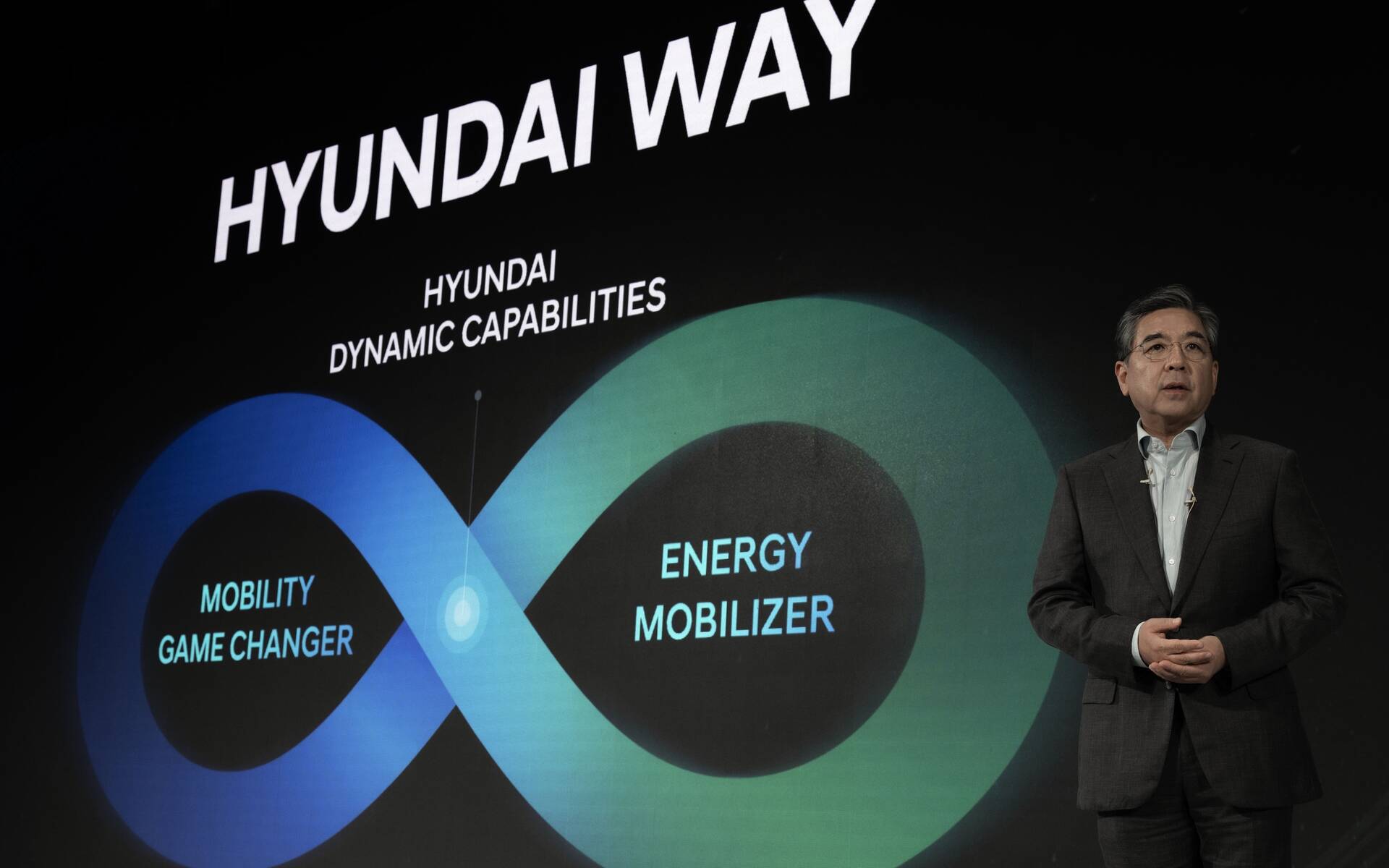Hyundai to Double Hybrid Offerings, Launch Range-Extending EVs
While continuing to expand its EV portfolio and advance battery technologies, Hyundai plans to ramp up hybrid vehicle production and solidify its leadership as a mobility and energy solutions provider.
That’s all part of the new mid- to long-term strategy, called the “Hyundai Way,” which was unveiled on Wednesday at the Japanese automaker’s 2024 CEO Investor Day in Seoul.
- Also: 2025 Hyundai Tucson Prices Go Up, Especially for the Hybrids
- Also: Hyundai, Still Focused on EVs, Wants to Build More Hybrids
Hyundai intends to double its current range of hybrids from 7 to 14 models. This expansion will encompass not only Hyundai vehicles but also its luxury brand Genesis, which will offer a hybrid option for all models (except those that are exclusively electric, like the GV60).

The company will also introduce a next-generation hybrid system, referred to as “TMED-II,” which promises significantly improved performance and fuel efficiency compared to the existing system. It is slated for integration into production vehicles starting from January 2025 and will encompass premium technologies such as smart regenerative braking and vehicle-to-load (V2L) charging.
In terms of sales, Hyundai’s goal is 1.33 million hybrids globally, an increase of over 40 percent from the previous year. North America will account for about half. Several models will be built at the new Hyundai Motor Group Metaplant America (HMGMA) in Georgia, U.S., alongside dedicated EV models including the IONIQ 5 and the upcoming IONIQ 9 three-row SUV based on the Hyundai SEVEN concept. The plant will open ahead of schedule later in 2024.
Speaking of EVs, Hyundai plans to launch 21 models globally by 2030, some of which will be high-performance N models. The automaker aims to not only use current NCM (nickel-cobalt-manganese) batteries and low-cost LFP (lithium-iron-phosphate) batteries but also develop a new, affordable NCM battery that will first be implemented in volume models.

In the meantime, in order to help drivers make the transition to full electrification, extended-range EVs that use a combustion engine to charge the battery on the go will join the lineup, as well. According to Hyundai, they will enable over 900 km of range when fully charged.
Mass production of these new EREVs in North America and China is expected to begin by the end of 2026, with sales commencing in earnest in 2027. Over here, we’ll be talking about compact-sized SUVs, with a target of 80,000-plus units a year.
As for overall sales targets, Hyundai aims to add 1 million units of production capacity to sell 5.55 million vehicles globally by 2030. Two million of those will be EVs if all goes according to plan.












